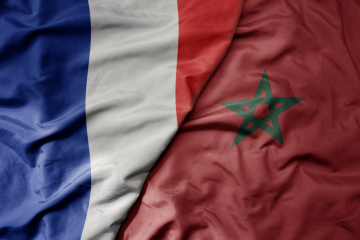
Mexico’s President-elect Claudia Sheinbaum and migration: What will change and what will remain the same?
On October 1st, Claudia Sheinbaum will be sworn in as the first female president in Mexico’s history. As president, Sheinbaum will have to address pressing issues that require domestic, bilateral, and regional cooperation, among them transit migration. Since taking office in 2018, Mexico’s current President Andrés Manuel López Obrador (AMLO) has promised to adopt a human rights approach to address transit migration, but throughout his presidency he has continued to implement policies that have further militarised migration routes and criminalised migrants seeking to reach the US, pushing many to take more dangerous routes. In 2023, the International Organization for Migration (IOM) found the US-Mexico border to be the world’s deadliest migration land route for migrants. Given the unprecedented levels of …

The 2015 EU “Refugee Crisis” : Analysing the IOM’s Information Campaign in Senegal
In 2015, Europe witnessed a significant increase in the influx of migrants, commonly referred to as the “2015 EU refugee crisis.” This article explores how this “crisis” transformed the migration-development agendas. With a specific focus on IOM’s information campaign in Senegal, I argue that the EU’s post-crisis migration policy has been characterised by the securitisation and externalisation of borders, reinforcing a pre-existing development agenda that primarily serves the political interests of EU states. What makes Senegal’s information campaign noteworthy is its use of affective, emotional, and relatable content to discourage Senegalese people from embarking on “irregular” journeys, rather than resorting to explicit violence such as highly militarised border controls. Although 2015 may sound like a long time ago, this type …

Have we underestimated migration in the Franco-Moroccan diplomatic crisis?
Traditionally close partners, Morocco and France have seen their relationship deteriorate in recent years under a variety of pressures. Much analysis has focused on the role of high politics and diplomatic considerations, such as the question of the sovereignty of Western Sahara. This article argues that while these are important, bottom-up approaches must also be considered. In particular, we highlight the impact of visa restrictions on inter-societal links, and how these affect the core of bilateral relations by damaging the human fabric of politics. The “exceptional partnership” between France and Morocco is a thing of the past, or at least severely damaged. Over the last two years, new crises have erupted at regular intervals. The most recent source of tension …







